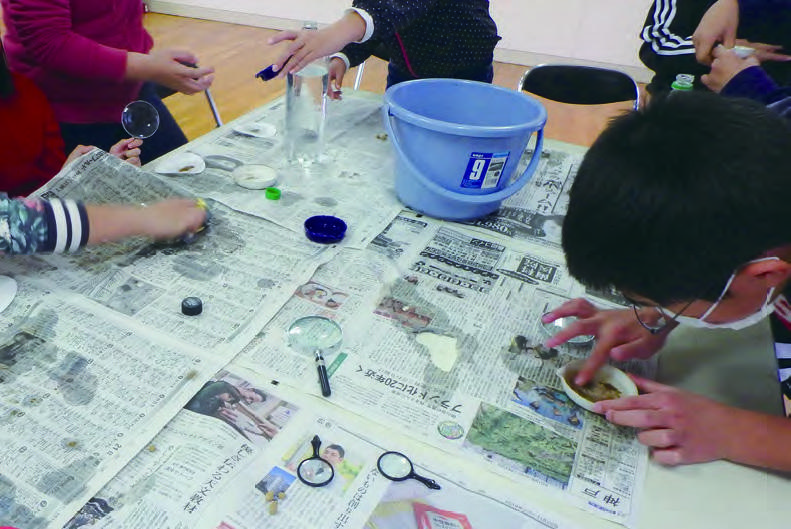Space Education Center
Adapting to New Curriculum Guidelines
Supporting Space Education
JAXA's Space Education Center engages in initiatives to "inspire children" using space as a teaching material. One of the pillars of these initiatives is providing educational support to preschools and kindergartens as well as elementary, middle, and high schools. The Center offers the Teacher Training program, which consists of activities such as suggesting ways to incorporate space education in curriculums and organizing workshops, as well as the Classroom Collaboration program, in which JAXA works with school teachers to design curriculums.
"One of the most memorable classroom collaborations we experienced was an elementary school class where students observed volcano ash during a lesson on geological strata," says SUZUKI Keiko, Associate Senior Administrator at the School Education Assistance Line, Space Education Office. "We pretended the volcanic ash was a sample to be brought back from asteroid Ryugu by Hayabusa2. Students were fascinated by the shiny minerals and talked with one another with great excitement."

New Curriculum Guidelines will be introduced in the school system starting with elementary schools in FY2020. The Guidelines put emphasis not just on the subjects to be learned but on the development of skills needed in the coming era, with the goal of fostering "the power to live." Since its founding, the Space Education Center has proposed youth education programs that spark "curiosity, the spirit of adventure, and the joy of craftsmanship" among children and that are therefore highly compatible with the new Guidelines.
SUZUKI continues: "In the FY2019 Teacher Training Program, we organized a poster tour class, which involves groups preparing their ideas in large sheets of paper and members presenting them to other groups. This is an example of the active learning method, which encourages students to actively engage in the learning process. Teachers had a chance to experience a learning process where everyone plays the main role through communication. In our Classroom Collaboration program, we also incorporated lessons focused on problem-solving, such as "ideas for new spacecraft."
"Quite a few teachers feel uncomfortable about their lack of specialized knowledge, so we suggest teaching materials that are approachable and give them tips on which class lessons should be used to introduce the materials and how," says SUZUKI. "We also want to incorporate space education in non-science subjects and reach out to teachers in different regions and school types. Our hope is that one day space will be a regular part of the classroom curriculum, so that some students will be able to pursue their interest and curiosity." The Space Education Center seeks to contribute to the expansion of space education by adapting to changes in the education system and its partners.
Profile

|
|
|---|
All the images are copyrighted ©JAXA unless otherwise noticed.
- Home>
- Global Activity>
- Public Relations>
- JAXA’s>
- JAXA's No.80>
- Adapting to New Curriculum Guidelines Supporting Space Education